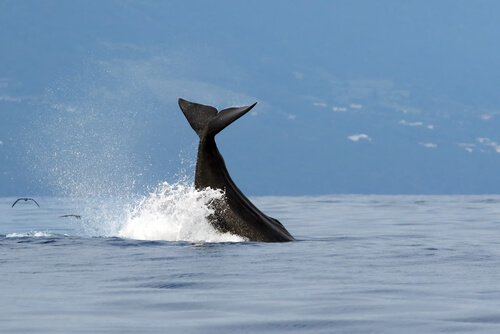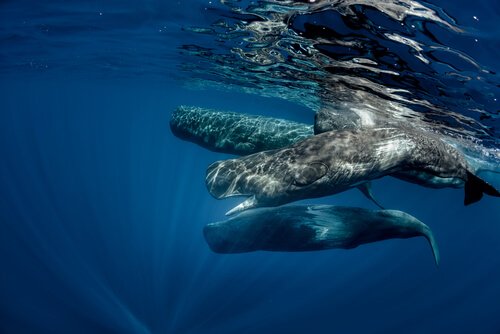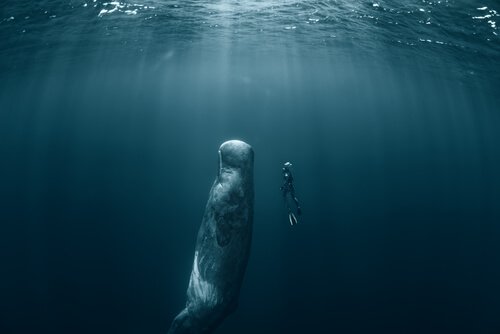The Largest Predator In The World

There are millions of different animal species on the planet, and some of them are huge. There are many large carnivores that human beings recognize. However, many people are unaware of the largest predator in the world.
The largest predator in the world
When people talk about predators, they mean animals that actively hunt other species in order to survive. The large cetaceans, like the blue whale, eat plankton, making them carnivores. However, this species is not a predator because they simply filter the water, rather than hunting animals.
Therefore, when it comes to the largest predator in the world, you should look elsewhere. If you look on dry land, the winner is more than clear. So, almost weighing in at 1543 pounds the polar bear is the largest predator on land.
Find out more about the largest predator in the world
However, when looking into the depths of the sea, you’ll find the largest predator in the world. This predator is a toothed whale which does hunt their own prey and weighs more than 50 tonnes.
It’s none other than the sperm whale. It’s the largest toothed animal that currently exists, making it the largest predator on the planet. These can reach 21 meters in length and 1/3 of their body is just their head.

A world record holder
The sperm whale is a world record holder because they have the largest head on the planet. However, their brain barely has a gyrus, which means their brain’s surface area and the number of neurones it has is not so great, so they aren’t considered to be the most intelligent animals.
The clicking noise that a sperm whale makes is the most intense sound that any animal can produce, though it’s still unknown why they emit this sound. These animals can live for 70 years and they spend an entire decade to raise their young.
Why were sperm whales hunted?
Until the end of the 20th Century, human beings hunted the largest predator in the world for a variety of reasons. One of these was spermaceti. This is a substance which solidifies in cold water and plays a part in buoyancy and underwater hearing.
Spermaceti has been useful for making candles, soaps, and excipients for pharmaceuticals. The substance is found in all whale blubber. However, in the case of the sperm whale, it’s possible to obtain up to three tonnes per whale.
Another important reason why the sperm whale was hunted, was for the biliary secretion of the intestines, known as ambergris, which was used to make perfumes, medicines, and even flavourings.
Just like other whales, whalers in the Basque Country and other nations used to hunt this species for their blubber or whale fat. The fame of the sperm whale for sinking ships like the Essex, inspiring the mythical Moby Dick, only heightened the interest.

What does the largest predator in the world hunt?
The largest predator in the world can hunt prey that other animals can’t. It dives down to 2 kilometres deep for two hours to hunt stingrays, octopuses, and the terrifying giant squid, which can weigh half a tonne.
The discovery of squids in the greatest depths has come about thanks to the remains inside the stomachs of sperm whales, as well as the wounds that they leave on the sperm whale’s skin.
Although it might seem incredible, people believe that the sperm whale could rival human beings for the consumption of marine life. Sperm whales eat approximately 100,000,000 tonnes of fish every year.
The sperm whale, an animal of legend, will continue amazing human beings. Although hunting them is now illegal, this amazing animal is still under threat from pollution and seismic surveys.
